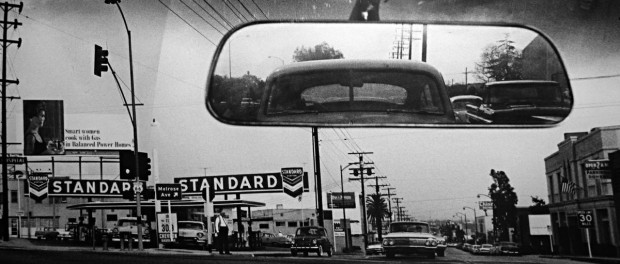American Voyeur: Melancholy in Griffintown
That day, I didn’t wake up with the best mindset. For no apparent reason melancholy had set in. It was just one of those days, but I was going to fight it. I went into the bathroom, stared at myself in the mirror and wiped the grimness off my face. Needless to say, it came back. Still in the midst of the natural despair I forced myself onto the streets. The decision of where I was going to go depended one factor: where would there be the least amount of people. I decided on Griffintown.
In order to get into Griffintown, I would have to pass through the grandeur that is Old Montreal. It was early, so all the tourists must have still been resting from a long walk up Mount Royal and a late-night poutine snack. The only people around were the shopkeepers out cleaning their windows or unloading the day’s worth of food from the delivery trucks. Within moments, I passed through an area of Montreal that tries to never change into a neighborhood that is undergoing a revitalization. After fighting a few detours, I turned onto a street where I became a tiny human figure isolated in the middle of a long stretch of warehouses as if they were reluctantly a part of an exhibition. But, other than the few smokers who stood in front of their buildings, I was the lone figure. Sort of an awkward introduction. Like any good neighborhood, graffiti covered many of the dock doors, the walls, and other hidden crevices. Once I finally exited the exhibition, I arrived at the waterfront. After crossing a busy intersection I was met by a few imposing forces.
In my ceaseless exploration of the fragile concept of preserving a moment, I took a photograph. At that moment, that particular space transmitted an undeniably powerful sense of loss. It was as if at one point in time these buildings were important to Montreal, and now, they just sit on the outskirts of the city waiting to be looked at by the joggers on the path. Overcome with these thoughts and a realization that there would inevitable be a confrontation between these buildings and the politics of the ongoing project, I took out my ipod and turned on the perfect soundtrack for Griffintown, ‘Shortwave Nights’ by the band Hiss Tracts. Not only was it perfect because it was created in the exact neighborhood I was in, but also the layers of orchestrated fatality, the brittle rhythms, the startling array of emotions inside each sound made it the perfect sound scape for the images I was seeing. Like Griffintown, the music might sound simple but it’s altogether more complex and awe-inspiring.
For some reason, I began to think about the 1966 Lunar Orbiter 1, the first American spacecraft to orbit the moon. Its job was to photograph the moon for NASA to find smooth landing spots. Why was I feeling sad for an object that was launched into space without any human life on board? Why was I seeing that spacecraft as such a distinct symbol of sadness? The neighborhood had morphed my brain into thinking of the most tragic outcomes, and about how temporary life is. Personally, the building’s or spacecraft’s destruction has no bearing on my life whatsoever, but that day everything was personal. Was that rusted cube shaped building going to be a part of the plans for the revitalized Griffintown, or are its days numbered? I paused a moment. There was a girl walking towards me. Hoping the sight of human life would end that current wave of thinking, I kept my attention on the girl. She was wiping something from her eye. Was it a tear or was she just scratching an itch? She turned and crossed the street. That would be another question without an answer.
Another question I pondered, why does a city have to try to revitalize every portion of its city? Why make Griffintown conform to the contemporary world? It’s in the rough edges that make this neighborhood interesting. Preserving a desolate, vacant section situated in close proximity to the city for the city folk to find some tranquility is a quality that every major city should have for its citizens. Then I realized, this is North America and we follow capitalism where everything is a spectacle and progress is expected, not preservation.
I made my way under an overpass hoping for simpler terrain to navigate. It was there I was met with more lost and abandoned things. A winter coat was caught in-between the light shining from the outside world and the darkness of the underpass. Then something positive happened. I saw that coat as the passing of the seasons. That coat was no longer needed, winter has fallen and the summer is upon us.
On the other side of the street, a plastered poster of a man I had imaged was a bare knuckle boxer. My mind altered, I went down one last row of warehouses on my way out of Griffintown. As I exited the street I turned back one last time and took a mental picture of how I wanted to remember the somber grace of a neighborhood under construction.













